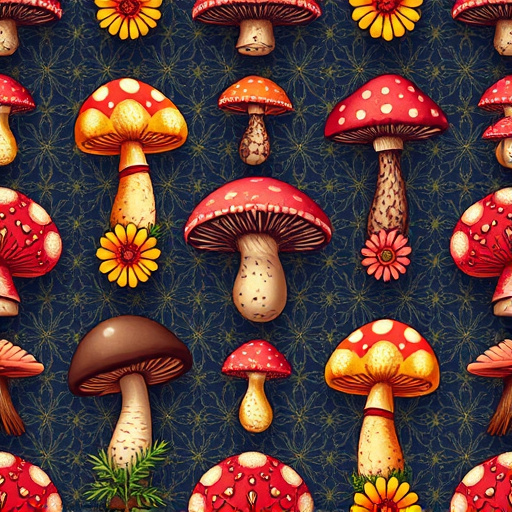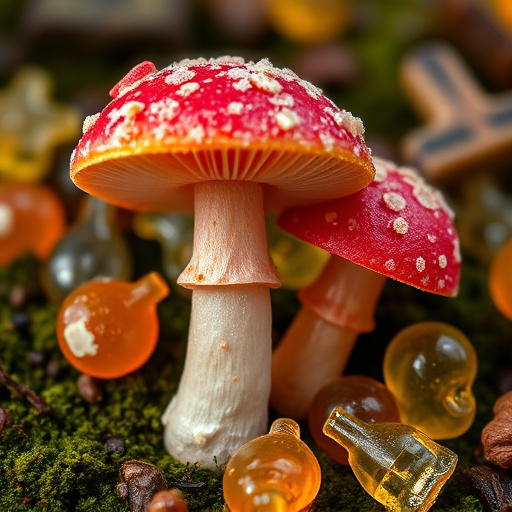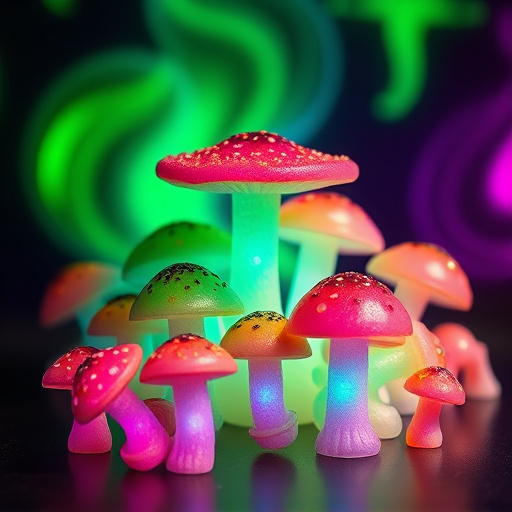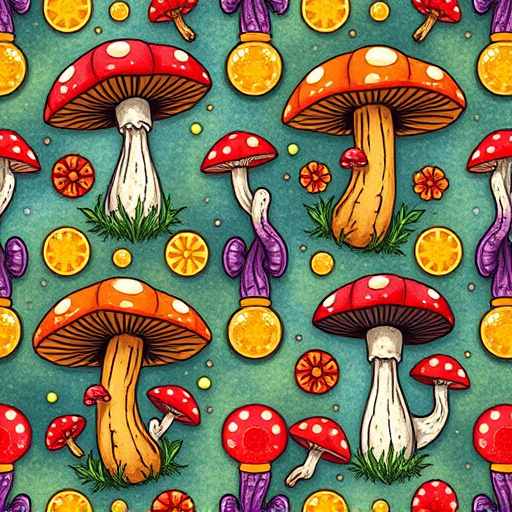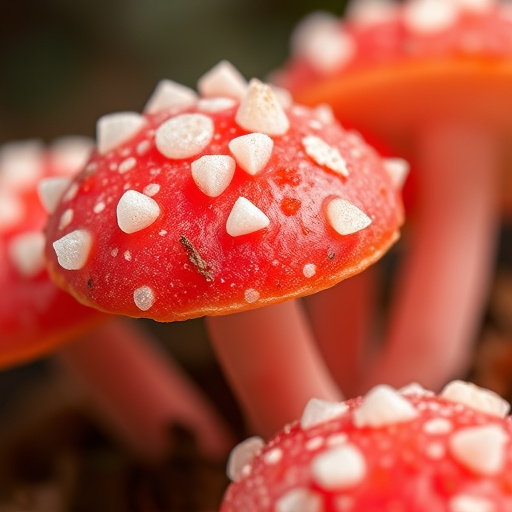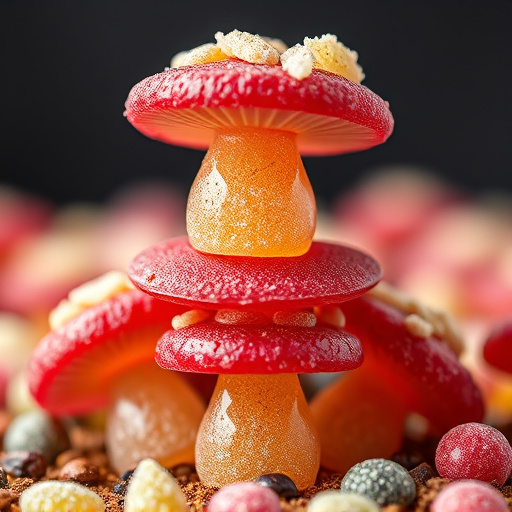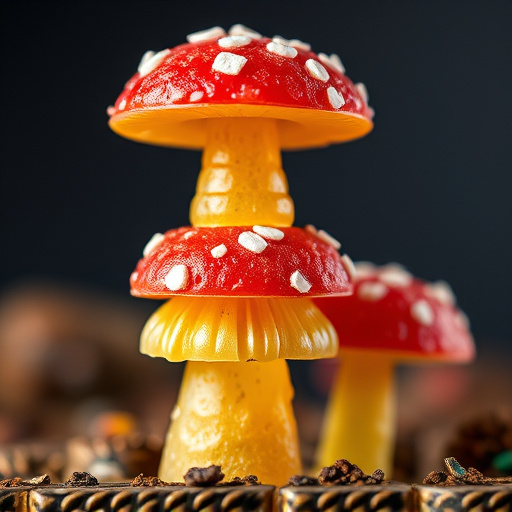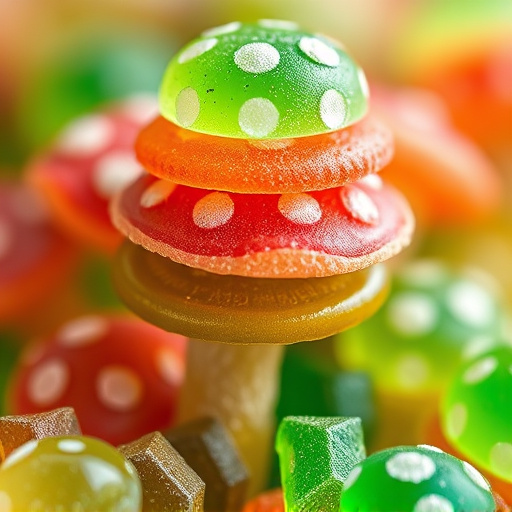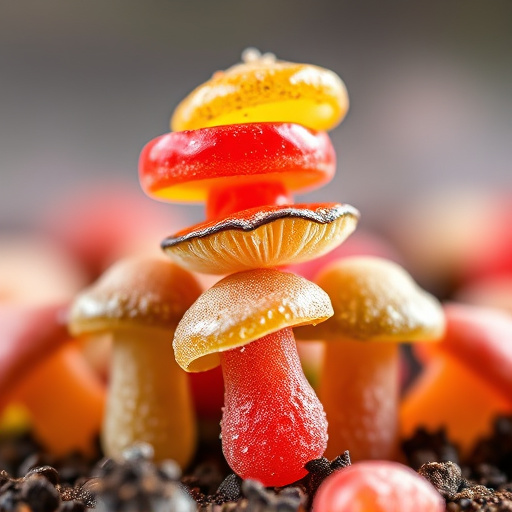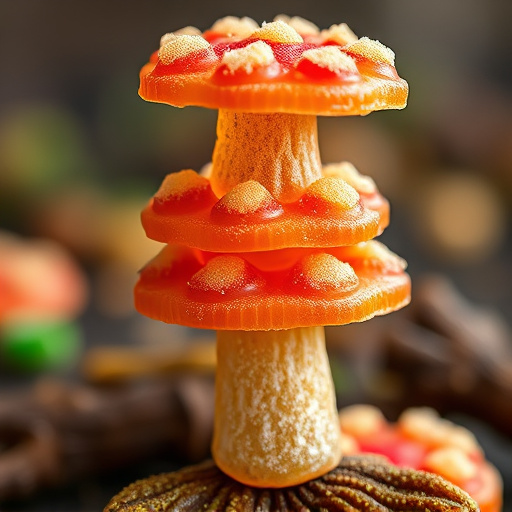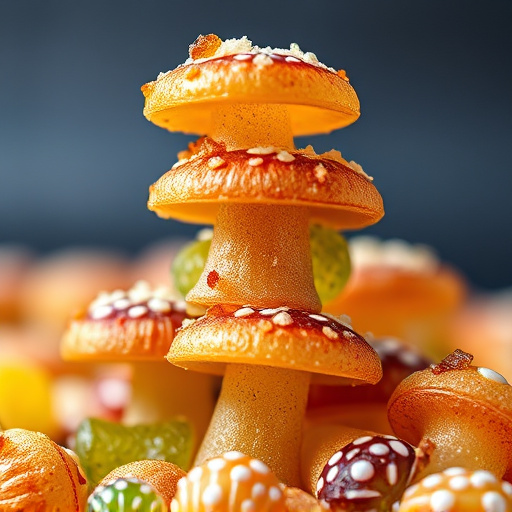The Legal Status of Magic Mushroom Gummies is a complex global issue, with countries reevaluating policies. While many keep them illegal, several regions have decriminalized or legalized magic mushrooms for medical and recreational use, spurring research and innovative brands offering targeted wellness gummies. Despite legal hurdles, these products promise mental health benefits through advanced extraction techniques. Consumers must understand local laws to avoid complexities, as the fragmented market landscape varies greatly between jurisdictions.
“Unraveling the evolving legal landscape of magic mushroom gummies worldwide, this comprehensive guide explores the intricate balance between consumer access and regulatory frameworks. With varying legal statuses across globe, understanding current regulations is paramount for responsible consumption. This article delves into key factors distinguishing top-rated brands, empowering readers to navigate the market safely and legally. By examining third-party testing, ingredient transparency, and manufacturing practices, we uncover the best options available while highlighting critical insights for making informed choices regarding legal magic mushroom gummies.”
- Understanding Legalities: The Current Landscape of Magic Mushroom Gummies
- – Exploring the legal status of magic mushroom gummies globally and in specific countries/regions.
- – Discussing the differences in regulations and how they impact consumer access.
Understanding Legalities: The Current Landscape of Magic Mushroom Gummies
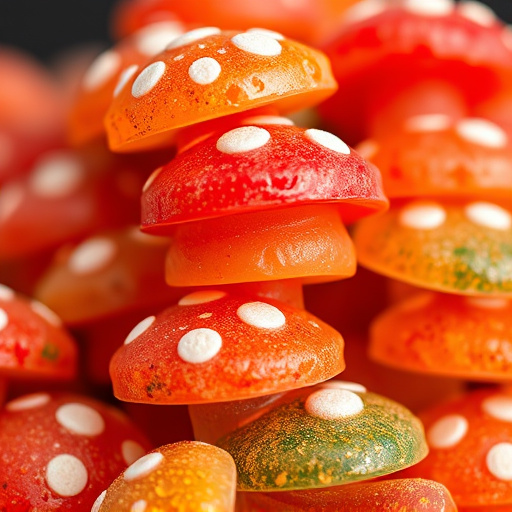
The legal status of magic mushroom gummies is a complex and evolving topic. In many countries, psychedelic substances like magic mushrooms are classified as illegal, leading to strict regulations and penalties for their production, sale, and possession. However, recent years have seen a shift in public perception and policy towards these compounds, particularly in certain regions. Some countries and states have decriminalized or even legalized magic mushrooms for medical or recreational use, allowing for research and therapeutic applications under controlled conditions.
This changing landscape has opened doors for innovative brands to enter the market with magic mushroom gummies designed for specific therapeutic benefits. While navigating the legal frameworks remains crucial, these brands are leveraging advancements in extraction techniques and understanding of psychedelic compounds to create products that offer potential mental health benefits. The growing acceptance and accessibility of magic mushroom gummies highlight the ongoing conversation surrounding their Legal Status of Magic Mushroom Gummies and the promising future they hold in addressing various wellness concerns.
– Exploring the legal status of magic mushroom gummies globally and in specific countries/regions.
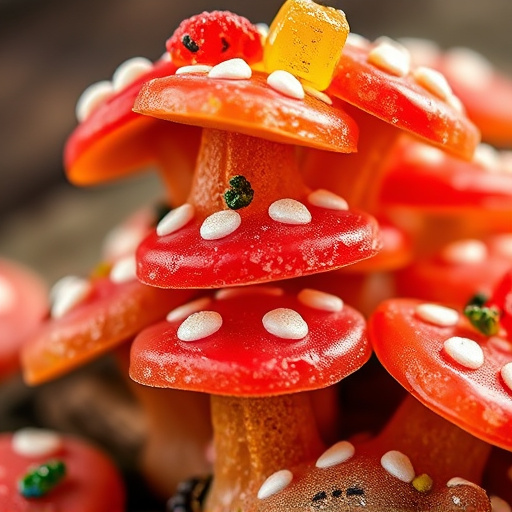
The legal status of magic mushroom gummies varies significantly worldwide, reflecting diverse cultural and regulatory attitudes towards psilocybin mushrooms and their derivatives. In many countries, including Canada, Netherlands, and parts of the United States, certain forms of psilocybin products like gummies are legalized for medicinal or therapeutic use under strict regulations. These regions often allow prescriptive access to psilocybin-containing edibles for treating conditions such as anxiety, depression, and end-of-life distress.
However, in other parts of the globe, magic mushroom gummies remain largely illegal due to stringent drug control policies and unfavourable public perceptions. Countries like Australia, Japan, and most European nations outside the Netherlands generally classify psilocybin as a controlled substance, with severe penalties for possession, sale, or distribution. As such, consumers must navigate a complex web of local laws to understand the legality of purchasing magic mushroom gummies, both domestically and when travelling abroad.
– Discussing the differences in regulations and how they impact consumer access.
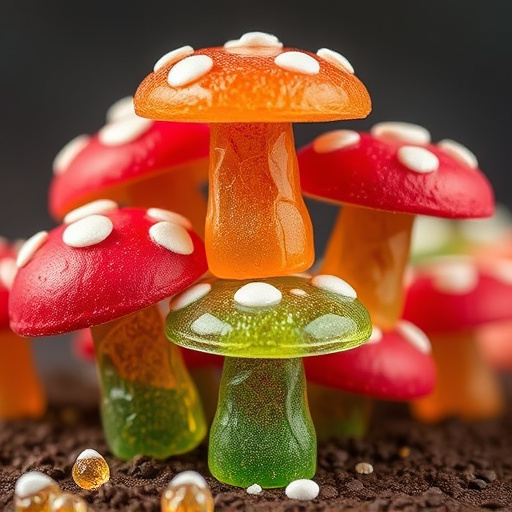
The legal status of magic mushroom gummies varies greatly across different regions, significantly influencing consumer access and the overall market landscape. In many countries, psychedelic substances like magic mushrooms are strictly regulated or even illegal, leading to limited options for consumers seeking these products in a controlled manner. Conversely, some jurisdictions have embraced a more permissive approach, allowing for legal sales and consumption under specific conditions.
These regulatory differences create a patchwork of access points. In areas where magic mushroom gummies are legalized, brands often thrive by catering to a curious and conscious consumer base. They utilize innovative packaging, precise dosing, and enticing flavors to differentiate themselves in the market. However, consumers in regions with stringent regulations might resort to informal channels or illegal markets, highlighting the complex interplay between legislation and consumer behavior regarding psychedelic products like gummies.
In conclusion, the legal status of magic mushroom gummies is a complex landscape that varies greatly worldwide. Understanding these differences is crucial for consumers seeking accessible and safe options. As regulations continue to evolve, staying informed about the current legalities of magic mushroom gummies is essential, enabling folks to navigate this intriguing realm responsibly.
